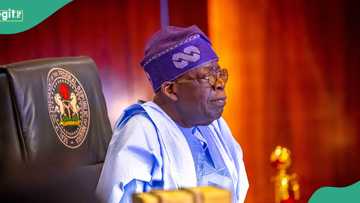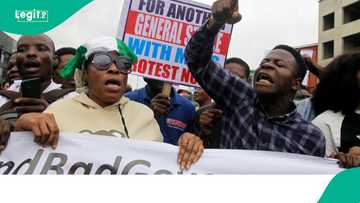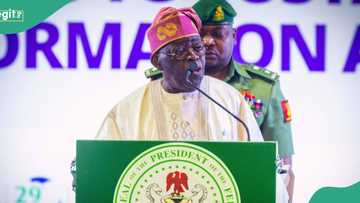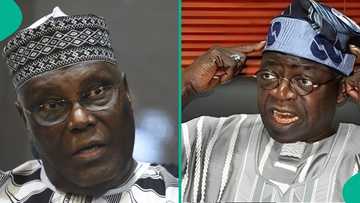Promises Unkept: Tinubu’s Silence on Women’s Representation Stains 2-Year Legacy
- President Bola Tinubu's administration is under fire for failing to implement the 35% affirmative action policy for women in governance, despite earlier promises
- Female representation in key political positions remains dismally low, with only seven women ministers and a minimal presence in the National Assembly
- Activists warn that without urgent reforms, Tinubu’s legacy may be defined by a lack of commitment to gender equity and democratic inclusion
Abuja, FCT - As President Bola Ahmed Tinubu marks his second anniversary in office this week, his administration is under increasing scrutiny for failing to deliver on the commitment to enact the 35% affirmative action policy for women in governance.
Despite pledges made during his campaign and early presidency, activists and legal experts say that women's political representation has seen little to no improvement, casting a shadow over Tinubu's record on gender inclusion and democratic progress.
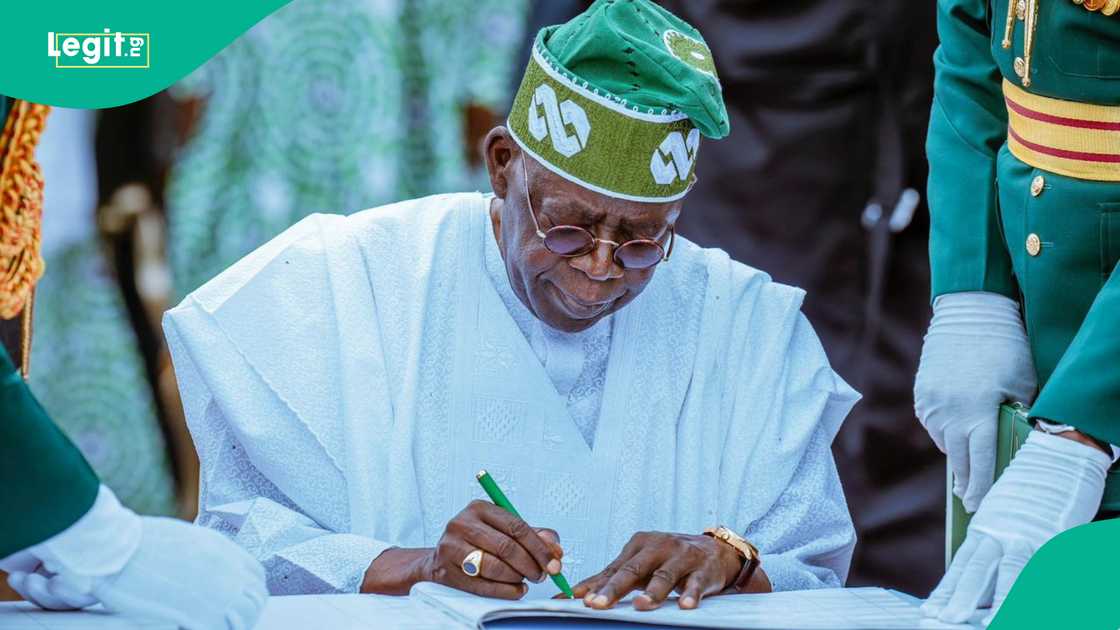
Source: Twitter
The 35% affirmative action policy, rooted in Nigeria’s 2006 National Gender Policy, mandates that women should occupy at least 35% of all appointive positions in public office. Many see it as a benchmark vital to correcting decades of gender imbalance in Nigerian politics and governance. Yet, two years into Tinubu’s presidency, the figures paint a starkly disappointing picture.
Only seven of Tinubu's ministers are women - Lawmaker
According to Barrister Juliet Isi Ikhayere-Asekomeh, former House of Representatives candidate and gender advocate, Nigeria remains far from meeting this benchmark.
“Out of 37 ministers, we just have about seven key ministers who are women. In the federal character commission, only four out of 36 representatives are women,” Ikhayere said in an exclusive interview.
She emphasised that this gross underrepresentation is not only contrary to international commitments but also unconstitutional, violating Sections 14(3) and 42 of the Nigerian Constitution, which prohibit discrimination and mandate inclusive governance.
Women representation in NASS is low
The National Assembly is no better. The 10th Assembly comprises just 17 women among the 360 members of the House of Representatives and three women in the 109-member Senate.
“One of the female senators was even removed without fair hearing,” Ikhayere lamented, underscoring the hostile environment women face in Nigeria's legislative space.
These figures are particularly poor given the precedent set during the failed attempt to pass the “special seats bill” in March 2022. The bill, which sought to reserve 111 seats for women in the National Assembly, was voted down by 208 lawmakers out of 290.
The rejection drew widespread condemnation from civil society organisations and women’s rights groups who viewed it as a missed opportunity to institutionalise gender equity in Nigerian politics.
Ikhayere noted that the judiciary has, at least in part, attempted to uphold women’s rights. In a 2022 judgment, Justice Donatus Okorowo of the Federal High Court ruled in favour of women's groups led by the Nigerian Women Trust Fund (NWTF), stating that the federal government had failed to implement the 35% affirmative action and ordered compliance with the National Gender Policy. Despite this landmark ruling, there has been no meaningful implementation by the executive branch.
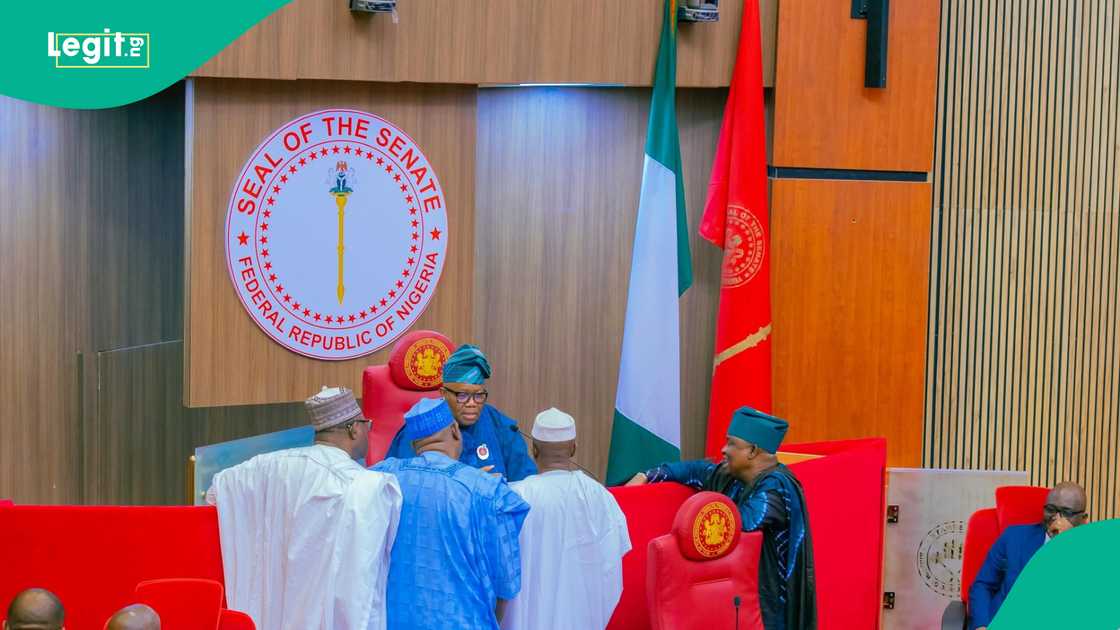
Source: Facebook
Civil society leaders express disappointment
Auwal Musa Rafsanjani, executive director of the Civil Society Legislative Advocacy Centre (CISLAC) and Chairman of Amnesty International Nigeria, expressed frustration at the administration’s inaction.
“The president has not committed himself to ensuring the realisation of the 35% affirmative action, despite the fact that his wife has been a three-time senator and an advocate for women's inclusion.
“We thought her position and experience would influence the president’s decisions, but that has not been the case,” he said.
Rafsanjani emphasised that true democratic governance cannot exist without equitable gender representation.
“We still have a long way to go in order to mainstream gender and ensure gender equality and equity in Nigeria,” he concluded.
Indeed, Nigeria remains one of the lowest-ranked countries globally in terms of female political participation. According to a 2023 UN Women report, Nigeria ranks 181 out of 193 countries in women’s representation in parliament. For context, Rwanda has 61% female representation in its lower house, South Africa 46%, and Senegal 43%.
The lack of political will to enact affirmative action has ripple effects beyond representation. Advocates argue it limits women’s influence on policy-making and stifles progress on issues affecting half of the population, including education, healthcare, and economic empowerment.
Tinubu asked to act in second half of term
With President Tinubu entering the second half of his term, civil society and women’s groups are renewing calls for action. They demand not just token appointments, but systemic reforms that will institutionalise gender inclusion across all levels of governance. These include passing gender equality bills, implementing the court ruling on affirmative action, and enforcing quotas in political parties.
As Nigeria reflects on 25 years of uninterrupted democracy and two years of Tinubu’s leadership, the glaring exclusion of women from political power challenges the narrative of democratic consolidation. Unless urgent steps are taken to reverse the trend, Tinubu’s tenure may be remembered not for progress but for missed opportunities on gender justice.
Source: Legit.ng

Nurudeen Lawal (Head of Politics and Current Affairs Desk) Nurudeen Lawal is an AFP-certified journalist with a wealth of experience spanning over 8 years. He received his B/Arts degree in Literature in English from OAU. Lawal is the Head of the Politics/CA Desk at Legit.ng, where he applies his expertise to provide incisive coverage of events. He was named the Political Desk Head of the Year (Nigeria Media Nite-Out Award 2023). Lawal is a member of the Oxford Climate Journalism Network. He is also a certified fact-checker (Dubawa fellowship, 2020). Contact him at lawal.nurudeen@corp.legit.ng or +2348054399455.

Auwal Musa Rafsanjani (Human rights activist) Auwal Musa Rafsanjani is the chairman of the Board of Amnesty International, Nigeria, and executive director of the Civil Society Legislative Advocacy Centre (CISLAC). Rafsanjani has been a member of Civil Liberties Organization and a member of The Center for Democracy and Human Rights. He was a founding member of Campaign for Democracy, led by late Beko Ransome Kuti, Democratic Alternative, also a member and coordinator of United Action for Democracy (UAD) led by Olisa Agbakoba.


